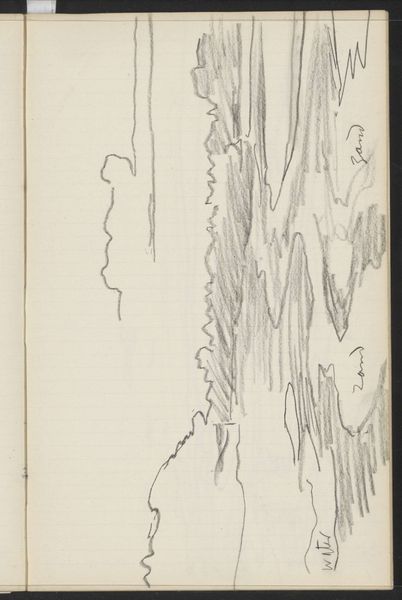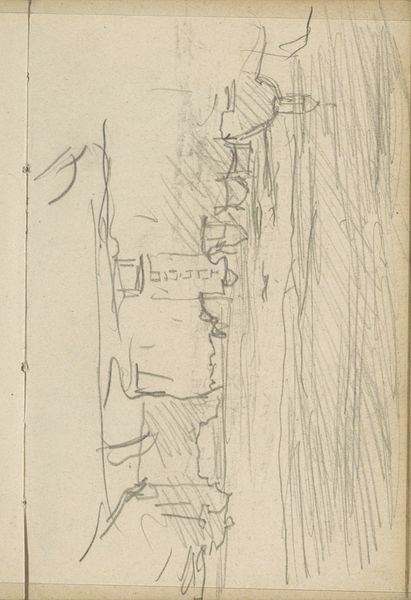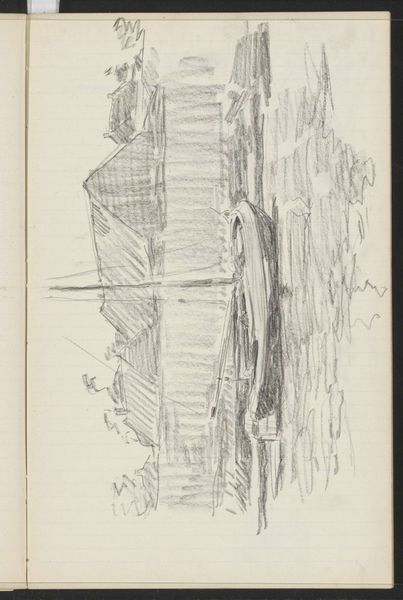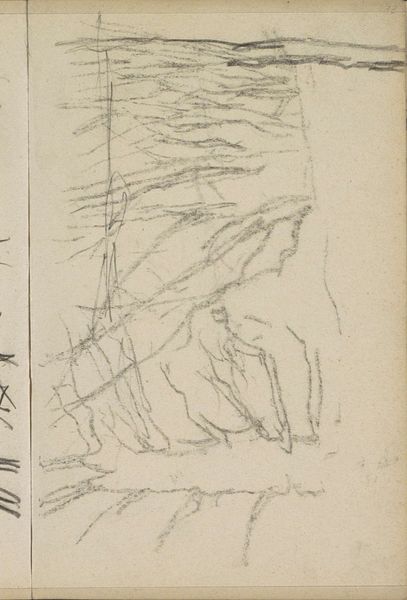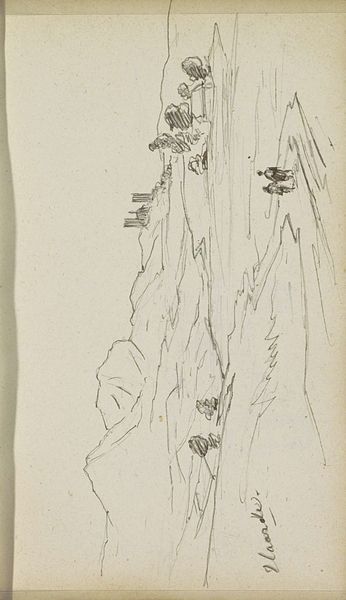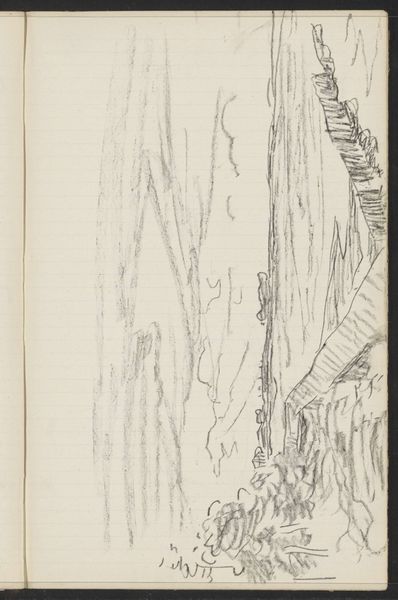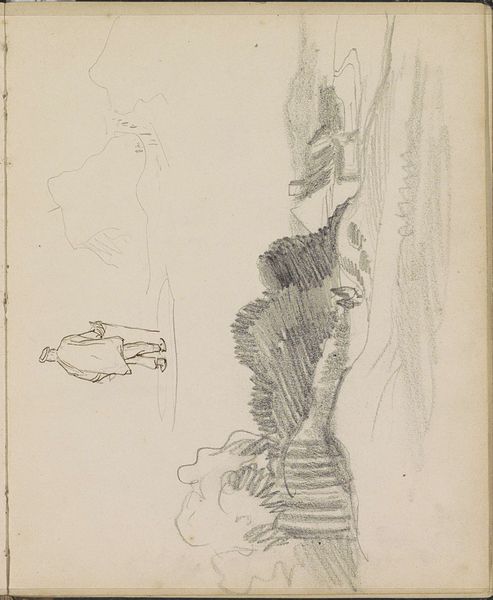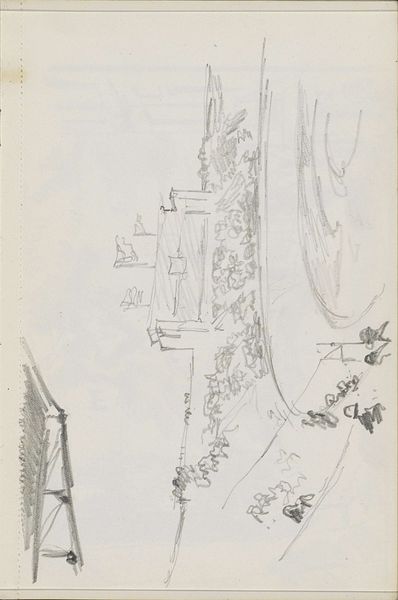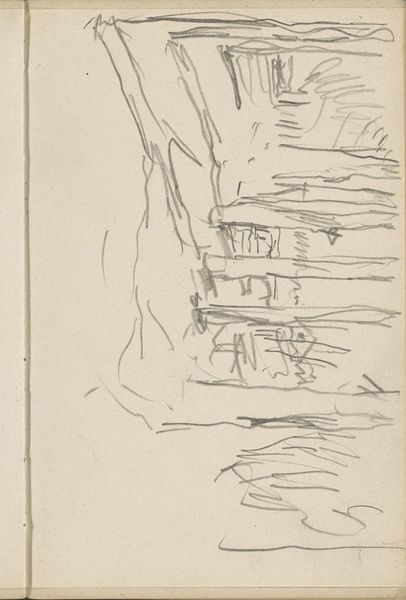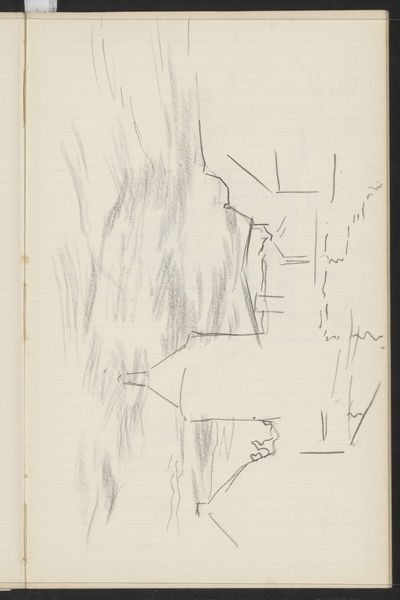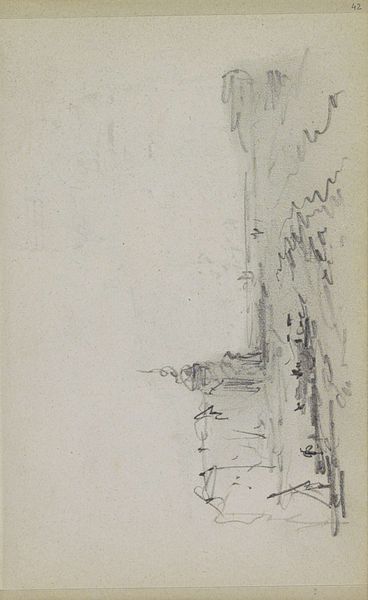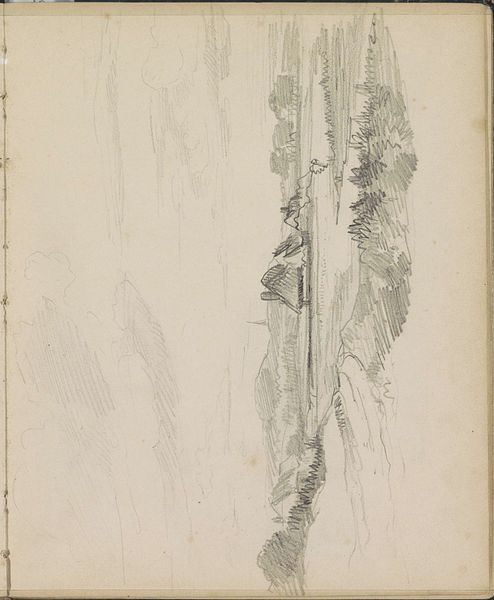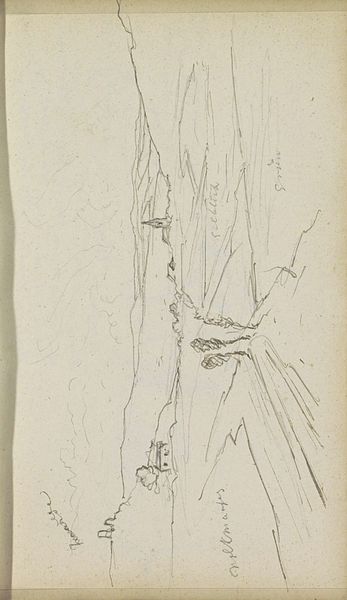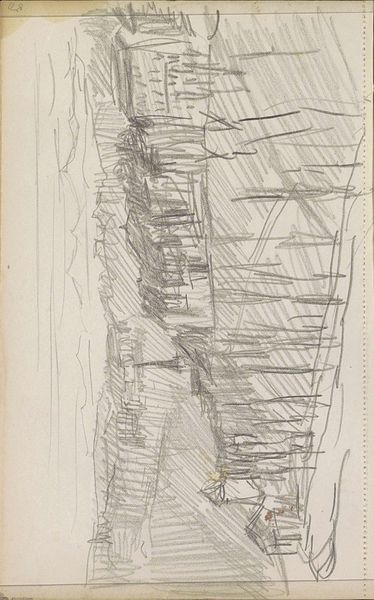
drawing, pencil
#
drawing
#
amateur sketch
#
toned paper
#
pen sketch
#
pencil sketch
#
incomplete sketchy
#
landscape
#
personal sketchbook
#
ink drawing experimentation
#
sketch
#
pen-ink sketch
#
pencil
#
sketchbook drawing
#
sketchbook art
#
realism
Copyright: Rijks Museum: Open Domain
Editor: This is Jan Willem van Borselen’s "River Landscape with a Mill," a drawing using pencil and pen, made sometime between 1868 and 1878. The sketchiness gives it an ephemeral quality, like capturing a fleeting moment. What do you see in this piece, beyond just a landscape? Curator: What strikes me is its quiet resistance to the dominant narrative of industrial progress. Look at how van Borselen centers the traditional windmill, a symbol of pre-industrial Holland, within the burgeoning landscape of modernity. It is crucial to question what isn't depicted as much as what is: where are the factories? The belching smokestacks? Editor: So, the artist is making a deliberate choice to focus on an older way of life? Curator: Exactly. By sketching this scene, he implicitly critiques the disruptive forces of industrialization, which marginalized agrarian communities and redefined labor. Furthermore, think about the accessibility of sketching as a medium. It democratizes artmaking. Did the working class have as easy access to oil paints and canvases as the elite? Editor: That’s a good point. It’s a subtle protest, accessible to many, both in creation and consumption. I initially saw just a pretty landscape but didn't consider it as commentary. Curator: It reminds us to always question whose stories are told, and how, especially during periods of immense societal change. It's not just about aesthetic appreciation; it’s about historical consciousness. Editor: I see that now, framing the artwork historically adds valuable insight to our understanding of the artwork, I’ll keep it in mind! Curator: It goes beyond the surface and encourages us to think deeply about its cultural role, reminding us that landscapes are never politically neutral.
Comments
No comments
Be the first to comment and join the conversation on the ultimate creative platform.
